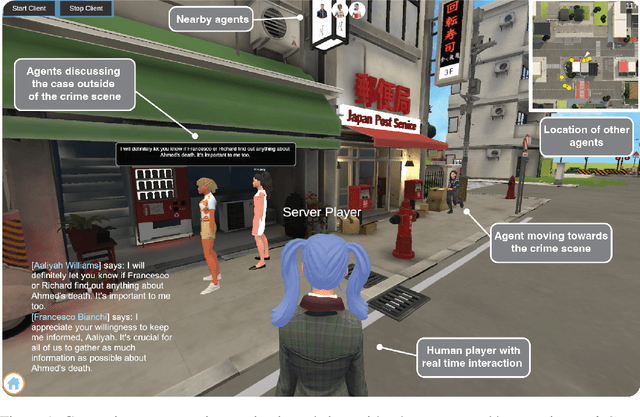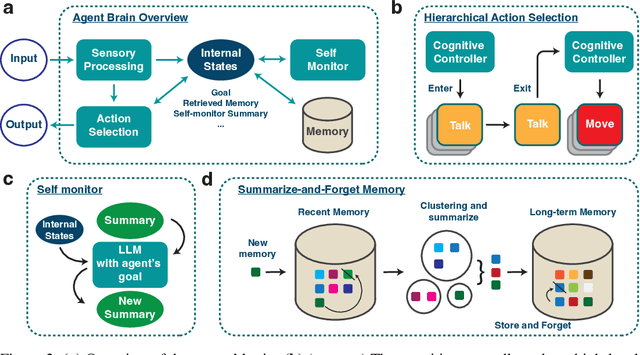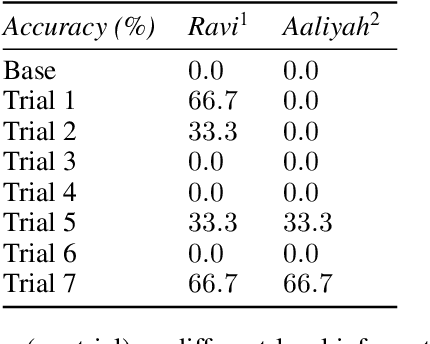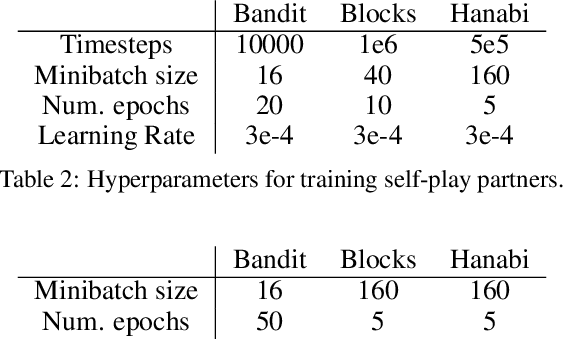Jovana Kondic
Empowering Biomedical Discovery with AI Agents
Apr 03, 2024



Abstract:We envision 'AI scientists' as systems capable of skeptical learning and reasoning that empower biomedical research through collaborative agents that integrate machine learning tools with experimental platforms. Rather than taking humans out of the discovery process, biomedical AI agents combine human creativity and expertise with AI's ability to analyze large datasets, navigate hypothesis spaces, and execute repetitive tasks. AI agents are proficient in a variety of tasks, including self-assessment and planning of discovery workflows. These agents use large language models and generative models to feature structured memory for continual learning and use machine learning tools to incorporate scientific knowledge, biological principles, and theories. AI agents can impact areas ranging from hybrid cell simulation, programmable control of phenotypes, and the design of cellular circuits to the development of new therapies.
Lyfe Agents: Generative agents for low-cost real-time social interactions
Oct 03, 2023



Abstract:Highly autonomous generative agents powered by large language models promise to simulate intricate social behaviors in virtual societies. However, achieving real-time interactions with humans at a low computational cost remains challenging. Here, we introduce Lyfe Agents. They combine low-cost with real-time responsiveness, all while remaining intelligent and goal-oriented. Key innovations include: (1) an option-action framework, reducing the cost of high-level decisions; (2) asynchronous self-monitoring for better self-consistency; and (3) a Summarize-and-Forget memory mechanism, prioritizing critical memory items at a low cost. We evaluate Lyfe Agents' self-motivation and sociability across several multi-agent scenarios in our custom LyfeGame 3D virtual environment platform. When equipped with our brain-inspired techniques, Lyfe Agents can exhibit human-like self-motivated social reasoning. For example, the agents can solve a crime (a murder mystery) through autonomous collaboration and information exchange. Meanwhile, our techniques enabled Lyfe Agents to operate at a computational cost 10-100 times lower than existing alternatives. Our findings underscore the transformative potential of autonomous generative agents to enrich human social experiences in virtual worlds.
On the Critical Role of Conventions in Adaptive Human-AI Collaboration
Apr 07, 2021



Abstract:Humans can quickly adapt to new partners in collaborative tasks (e.g. playing basketball), because they understand which fundamental skills of the task (e.g. how to dribble, how to shoot) carry over across new partners. Humans can also quickly adapt to similar tasks with the same partners by carrying over conventions that they have developed (e.g. raising hand signals pass the ball), without learning to coordinate from scratch. To collaborate seamlessly with humans, AI agents should adapt quickly to new partners and new tasks as well. However, current approaches have not attempted to distinguish between the complexities intrinsic to a task and the conventions used by a partner, and more generally there has been little focus on leveraging conventions for adapting to new settings. In this work, we propose a learning framework that teases apart rule-dependent representation from convention-dependent representation in a principled way. We show that, under some assumptions, our rule-dependent representation is a sufficient statistic of the distribution over best-response strategies across partners. Using this separation of representations, our agents are able to adapt quickly to new partners, and to coordinate with old partners on new tasks in a zero-shot manner. We experimentally validate our approach on three collaborative tasks varying in complexity: a contextual multi-armed bandit, a block placing task, and the card game Hanabi.
 Add to Chrome
Add to Chrome Add to Firefox
Add to Firefox Add to Edge
Add to Edge